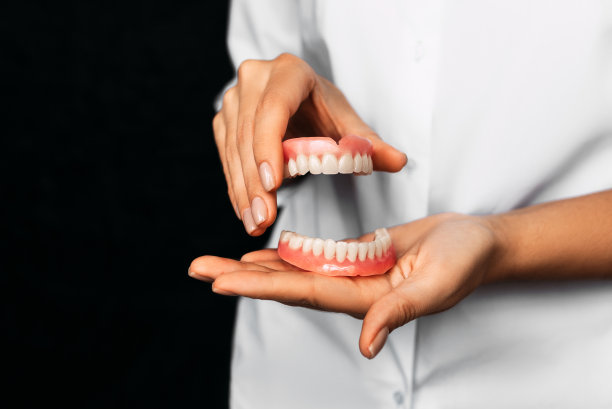Summary: Dental fillings are a common procedure used to restore teeth affected by decay or damage. Ensuring a successful dental filling involves several essential precautions before, during, and after the procedure. This article outlines the importance of selecting an experienced dentist, preparing for the procedure, understanding the aftercare needed for proper healing, and maintaining long-term oral health through good hygiene practices. Each aspect is crucial to maximizing the benefits of dental fillings while minimizing complications and ensuring that oral health is sustained in the long run.
1. Choose an Experienced Dentist Carefully

Selecting the right dentist is vital for a successful dental filling procedure. A skilled and experienced dentist will have the necessary training and expertise to handle various dental issues. Researching potential dentists, reading reviews, and seeking recommendations can help you find someone who specializes in restorative dentistry. Inquire about their certifications and experience specifically related to dental fillings.
It is also advisable to schedule a consultation before the actual appointment. During this visit, you can discuss your dental health concerns, treatment options, and the materials that may be used for the filling. This open communication helps build trust between you and your dentist, ensuring a smoother procedure.
Lastly, consider the dental office environment. A clean, well-organized, and friendly clinic can enhance your overall experience. A positive environment often indicates a professional care approach, which can influence the success of your dental procedure.
2. Prepare for the Dental Filling Procedure
Preparation is a crucial step when it comes to dental fillings. Before your appointment, it鈥檚 essential to be aware of your dental health history and present concerns. Make a list of any medications you are taking or allergies you may have, which can affect the procedure. Inform your dentist about these factors during your consultation.
Additionally, understanding the procedure and what to expect can ease your anxiety. Ask your dentist about the steps involved in the filling process, the types of anesthesia used, and how long the procedure will take. Being informed will help set your mind at ease and make you feel more comfortable on the day of the appointment.
Finally, arrange for transportation if necessary, especially if sedation will be used. Bringing someone with you can also provide emotional support, helping to alleviate any stress you may feel about the dental filling procedure.
3. Follow Aftercare Instructions Properly
After receiving a dental filling, following the aftercare instructions provided by your dentist is critical. Initially, avoid consuming hot or cold foods and drinks for at least 24 hours to prevent discomfort. Sensitivity can occur after the procedure, and being cautious helps to reduce the risk of pain.
Moreover, practicing good oral hygiene is essential during the healing process. Gently brush and floss around the filled area to maintain cleanliness without causing trauma. Your dentist might also recommend specific products, such as fluoride mouthwash or desensitizing toothpaste, to aid the recovery process.
Lastly, schedule follow-up appointments as advised. This is crucial for ensuring that the filling is settling well and that your overall oral health is monitored. If you notice any unusual symptoms such as increased pain or sensitivity, inform your dentist immediately for proper assessment.
4. Maintain Long-Term Oral Health Practices
Maintaining good oral health after a dental filling is not just important for the longevity of the filling itself, but for your overall dental health. Adopt a routine that includes brushing twice a day, flossing daily, and using mouthwash to help prevent decay and gum disease in surrounding teeth.
Additionally, a balanced diet plays a significant role in oral health. Limit sugary snacks and beverages, as they can contribute to tooth decay. Instead, opt for nutritious foods rich in vitamins and minerals that strengthen teeth and gums, such as dairy products, lean proteins, and fruits.
Regular dental check-ups are another essential component of maintaining oral health. These visits allow your dentist to monitor the condition of your fillings and overall dental health. Catching any issues early on can greatly minimize the need for more extensive dental work in the future.
Summary:
In conclusion, ensuring a successful dental filling procedure requires diligent preparation, including selecting an experienced dentist, preparing adequately for the visit, following aftercare instructions strictly, and maintaining long-term oral health practices. By adhering to these precautions, patients can enjoy the benefits of dental fillings while promoting overall oral wellness.
This article is compiled by Vickong Dental and the content is for reference only.
Vickong Dental
Vickong Dental is a large medical group established in Hong Kong in 2008 by professors from well-known medical universities in Guangdong and Hong Kong, as well as medical doctors from key national '985' universities (including Master's supervisors and senior professors). The chain of branches brings together expert dentists with PhDs and Master's degrees from Hong Kong and Mainland China, committed to providing high-quality dental treatment.
"Vickong Dental Practices the University Motto of 'Healing and Serving Society,' with a Stable Operation for Sixteen Years. It Has Been honored with Hong Kong Enterprise Leaders's Choice,' and is a Global Trusted Implant Center for the Nobel Implant System. Recommended by Hong Kong Metro Broadcast and Guangdong Television, it Serves Customers from Over Thirty Countries and Regions, Gaining the Trust and Favor of Citizens from the Guangdong-Hong Kong-Macau Greater Bay Area and Surrounding Cities.

Thousands of customers' unanimous praise
The most recognized and highly recommended dental service by customers in the Guangdong-Hong Kong-Macau Greater Bay Area
We Ensure You Receive Detailed Care and Attention Here
Hong Kong standards, Shenzhen prices, Your Trusted English-speaking dentists

Vickong Dental Medical-Grade Instrument Disinfection Process
Vickong Dental Medical-Grade Instrument Disinfection Process

Vickong Dental Chain: A Warm and Comfortable Environment for Treatment






Appointment Hours

Q&A
Why choose Vickong Dental?
Vickong Dental practices the university motto 「Medicine to Benefit Society」, with each branch bringing together highly qualified dentists with doctoral and master’s degrees from Hong Kong and the Mainland, and has maintained seventeen years of steady operation。Recipient of 「2024 Hong Kong Enterprise Leaders Brand」, 「2025 Hong Kong Enterprise Leaders Brand」, a Nobel Biocare Global Trusted Implant Center, and a brand recommended by Metro Radio Hong Kong and Guangdong TV。
To date, we have served customers from more than thirty countries and regions,earning exceptionally high word-of-mouth recognition and trusted recommendations from residents across the Guangdong-Hong Kong-Macao Greater Bay Area and surrounding cities
We have eight major branches in Zhuhai、Shenzhen,and a consultation and service assurance center in Hong Kong,so you can book a free consultation at any time for any questions,which is very reassuring.
If I do not accept the quotation after the CT scan, will I be charged??
No! As long as the actual treatment has not started, you will not be charged any fees.
Will there be any additional charges during the treatment process?
No, there won’t be any additional charges. Before treatment begins, we will clearly explain the treatment plan and its corresponding fees. Only after the patient agrees and signs the consent form will we proceed with the dental service.
Can I pay in Hong Kong dollars?
Yes. Vickong Dental accepts payment in Hong Kong dollars. The amount will be converted based on the exchange rate of the day, and the applicable rate will be clearly communicated to you in advance.
Can I reschedule my appointment at any time?
Yes. Please contact us via **WeChat** or **WhatsApp** as early as possible, providing your original appointment time and details, along with your preferred new date and time slot for rescheduling.













